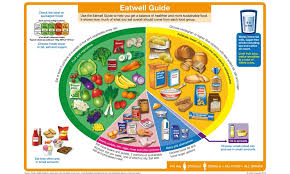Improving your diet starts with small, manageable steps. Try to include nutrient-rich foods in your meals and snacks while minimizing your intake of heavily processed items.

Eating healthy doesn’t have to be overwhelming. It’s possible to fuel your body with nourishing foods while still enjoying what you eat. Food should be a source of pleasure — not something to track, fear, or overanalyze.
Let’s explore what healthy eating really means and how to apply it in real life.
Why Healthy Eating Is Important
Your body relies on food to function — it provides energy and essential nutrients. If your diet lacks adequate calories or vital nutrients, your well-being can suffer.
Consuming too many calories, on the other hand, can lead to weight gain. Excess weight increases your risk of several chronic conditions, including:
-
Type 2 diabetes
-
Sleep apnea
-
Cardiovascular disease
-
Liver conditions
-
Kidney issues
Beyond weight, the overall quality of your diet significantly affects your health, longevity, and even your mood.
Research has linked diets high in ultra-processed foods to a higher risk of premature death. Additional studies show a strong connection between heavily processed diets and an increased likelihood of developing cancer and heart disease.
Conversely, eating mostly whole, nutrient-packed foods — like those found in the Mediterranean diet — has been associated with longer life expectancy and reduced disease risk.
Diets high in ultra-processed foods may also be tied to symptoms of depression, especially in people who are less physically active.
If your eating habits involve a lot of packaged snacks and sugary drinks but few vegetables, nuts, and seafood, you might be missing out on important nutrients — which could impact your health over time.
Do You Need a Specific Diet to Be Healthy?
Not at all. While some people must follow specific eating plans for medical or personal reasons, most people don’t need to stick to a strict diet to feel good.
Eating well simply means giving your body what it needs through mostly wholesome, nutritious foods.
What that looks like will vary based on your culture, income, lifestyle, and preferences.
The Essentials of Healthy Eating
Nutrient Density Matters
Calories do count, but it’s the nutrients within those calories that matter most. Your body needs a balance of macronutrients — protein, carbs, fats — along with vitamins and minerals to stay strong and energized.
“Nutrient-dense” foods provide a high concentration of nutrients compared to their calorie content.
Take eggs, for example. Egg whites are low in fat and calories but also low in essential nutrients. Whole eggs, on the other hand, offer significantly more vitamins and minerals, such as B12, choline, and iron.
Foods like vegetables and fruits are naturally low in calories and high in nutrients. Others — like avocados, nuts, fatty fish, and full-fat yogurt — are higher in calories but still incredibly nutritious.
Keep in mind: high-calorie doesn’t mean unhealthy, and low-calorie doesn’t automatically mean good for you.
Aim to base your meals around whole, nutrient-dense foods like:
-
Fresh vegetables and fruit
-
Nuts and seeds
-
Legumes
-
Eggs and fish
-
Healthy fats
Variety Is Key
Eating a wide range of foods helps support your gut health, boosts your immune system, and can protect against chronic illness.
If you’re a picky eater, try introducing new foods gradually. For instance, add one vegetable you enjoy to your meals daily, then slowly branch out.
The more familiar a food becomes, the more likely you are to accept it over time.
Balancing Macronutrients
Your diet should include a mix of carbohydrates, fats, and protein. (Fiber is a type of carbohydrate.)
Each of your meals and snacks doesn’t need to be perfectly balanced, but combining macronutrients can improve satisfaction and fullness.
For example, if you’re having fruit, add peanut butter or cheese for added protein and fat to keep you feeling full longer.
There’s no need to count macros unless you’re an athlete, managing a specific medical condition, or working on body composition goals under professional guidance.
Obsessing over macronutrient ratios may lead to anxiety around food or disordered eating. Instead, focus on how foods make you feel and build your meals accordingly.
Whether your body thrives on a higher-carb or higher-fat diet, just make consistent choices that align with what makes you feel your best.
Cut Back on Ultra-Processed Foods
One of the simplest ways to improve your eating habits is to reduce your intake of highly processed products.
Not all processed foods are bad. Some — like frozen fruits, canned beans, or shelled nuts — are minimally processed and still very nutritious.
However, ultra-processed foods like:
-
Soda
-
Packaged pastries
-
Sugary breakfast cereals
-
Candy
-
Processed snack cakes
…often contain little to no whole-food ingredients and tend to be high in added sugars, sodium, and unhealthy fats.
Making Healthy Eating Work for You
Start by making food a regular priority — not an afterthought. That doesn’t mean you need to spend hours in the kitchen, but a little planning goes a long way.
Shop for groceries regularly so you have access to nourishing foods. A stocked fridge and pantry make it easier to make healthy choices.
When grocery shopping, focus on:
-
Fresh and frozen produce
-
Protein (chicken, fish, eggs, tofu)
-
Whole grains and canned legumes
-
Root vegetables and starchy options (like sweet potatoes)
-
Healthy fats (avocado, olive oil, full-fat yogurt)
-
Simple, nutritious snacks (nuts, hummus, dried fruit, olives)
If you’re not used to cooking, begin with one or two simple meals. Once you’re comfortable, build up to meal planning for several days at a time.
Building a Healthy Relationship with Food
Healthy eating isn’t just about what you eat — it’s also about how you feel around food.
If you struggle with disordered eating patterns or food guilt, consider working with a registered dietitian and a mental health provider who understands eating behavior.
Avoid rigid food rules, cheat-day mindsets, or crash diets — these are often harmful, not helpful. Rebuilding your relationship with food takes time and compassion, but it’s essential for both mental and physical well-being.
More Tips to Get Started
-
Cook more meals at home. Even one or two home-cooked meals a week is a great start.
-
Aim for progress, not perfection. Small steps are meaningful.
-
Ditch the “cheat day” mentality. All foods can fit into a balanced way of eating — no need for guilt.
-
Stay hydrated. Water is the best beverage for hydration. Try adding lemon or fruit if you want more flavor.
-
Honor your preferences. You don’t have to force yourself to eat foods you dislike. There are many healthy options out there.
And remember, working with a registered dietitian can help you tailor a plan that fits your lifestyle and goals.
Final Thoughts
Healthy eating doesn’t mean following rigid rules or cutting out your favorite foods. It’s about making mostly nourishing choices, limiting overly processed items, and finding what works best for you.
If you’re looking for tailored guidance, consult with a qualified dietitian who can help create a realistic and sustainable plan that supports your health — inside and out.

